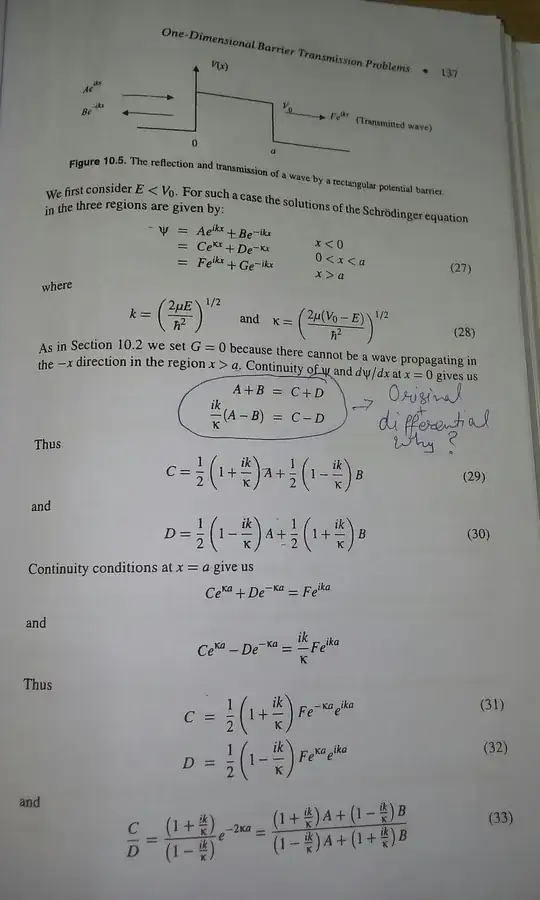I am reading an one-dimensional barrier problem. To evaluate the unknown constants $A,B,C,D$, the continuity of $\Psi(x)$ and $\frac{d\Psi}{dx}$ is used at $x=0$ where the potential has a discontinuity. I understand continuity of $\Psi$. But why is the derivative of $\Psi$ continuous at $x=0$? It has a step function which is not differentiable at $x=0$.
Asked
Active
Viewed 1,559 times
2 Answers
0
If the potential at some point is continuous or has finite discontinuty then from the Schrodinger equation one can show that the derivative of $\psi$ at that point is continuous.
SRS
- 27,790
- 13
- 115
- 365
0
The short answer is that the first derivative of the wavefunction must be continuous in order for you to take the second derivative of the wavefunction. (Recall that the time independent, non-relativistic Schrödinger Equation involves two spatial derivatives.)
(I wrote the above because the links listed in the comments are nice and useful, but also very detailed; the above is a nice, non-rigorous physics-y argument that I believe captures the relevant point.)
astronautgravity
- 1,149
